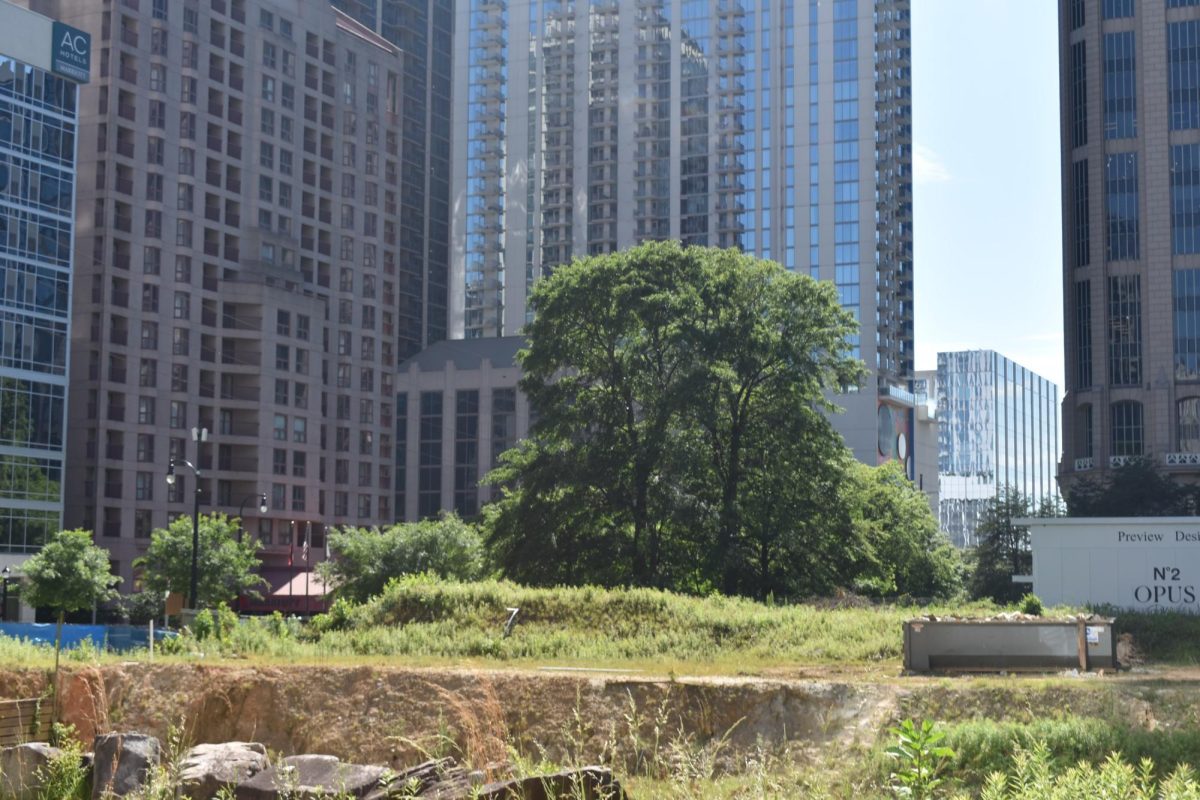By Olivia Veira
More than 600 frustrated parents gathered at Maynard Jackson High School on Jan. 30 to voice their concerns about the two latest plans to rezone elementary, middle and high schools in the APS district.
APS is redistricting all of its schools because 2010 census data indicates that several schools in the district, including Grady, are overcrowded, while others are operating at 30- to 50-percent capacity. APS must accommodate almost 5,470 additional students due to population growth in the neighborhoods surrounding Grady.
Two proposed redistricting maps were released on Jan. 27, and at the meeting three days later, emotions ran high.
Parents with children at Mary Lin Elementary School wore neon yellow stickers stating “Mary Lin (K-5), Inman, Grady. Keep it that way!” to express their interest in keeping their cluster of neighborhood schools together.
One Old Fourth Ward parent stood up to make suggestions to the demographers.
“It makes logistical sense for the Mary Lin community to go to Coan,” she said.
The Mary Lin community responded by booing and later a representative responded to the Old Fourth Ward’s accusation of racial division in the plans.
“I’m not a racist,” said the Mary Lin parent. He said Mary Lin parents are concerned with continuity and walkability and that their interests were not meant to divide APS racially in any way.
The meeting was the first in a series of community meetings in which APS listened to families affected by redistricting.
APS director of media relations Keith Bromery said the first set of maps, which were released in late November and caused vehement parental backlash, were “experimental.” Bromery said the board of education never intended to implement the maps and that they were produced to inspire community feedback. The maps were released before the board of education had the opportunity to see them and were strictly based upon census data. The demographers did not take history, feeder patterns, clusters or community ties into account.
Believing that these maps were actual proposals, communities protested them ardently. Parents in the Morningside community created a petition against the redistricting plan because the first maps suggested that parts of their neighborhood would be zoned out of the Morningside-Inman-Grady cluster.
Harsch-Kinnane, APS board representative for Grady, said superintendent Erroll Davis will make the final changes to the maps.
Duggan Lansing, Grady parent and Morningside resident, is glad APS is responding to parents but does not think the maps are done.
“The maps were a step in the right direction, but if they were listening carefully, the concerns could have been solved for a lot of parents,” Lansing said.
The parents who stood to speak in front of the demographers and board members on Jan. 30 focused mainly on walkability, crowding, feeder patterns, clusters and race.
Literature teacher and Grant Park resident Deedee Abbott said each person voiced his or her own interests rather than speaking out in the interest of all APS parents and students.
“I didn’t hear anyone mention the greater good,” Abbott said. “But it’s hard to take one for the team when it’s your child.”
Although Abbott’s children go to the Atlanta Neighborhood Charter School, she said she would consider sending her kids to her zoned high school, Maynard Jackson. She understands that parents within the Morningside- and Mary Lin-Inman-Grady clusters are interested in continuity but said other schools could benefit from rezoning in the long term.
“Maynard Jackson is underpopulated as a school and underperforming, and it seems one of the things that makes Grady strong is that there is consistency,” Abbott said. “Some of these kids have been together since elementary school. If there were a middle school dedicated to Maynard Jackson, either Coan or MLK, we could build a community around that, and it wouldn’t scatter the kids like it does now.”
Abbott also noticed how much of an impact race was having on redistricting. She described Atlanta as “pretty racially divided.” She said redistricting also fosters the division of children of different socioeconomic statuses. Julia Neighbors, who lives in the Old Fourth Ward neighborhood, agreed with Abbott.
“When you look at the demographics of our city, the Northeast sector is a very diverse community as a whole,” Neighbors said. “But when you drill down at the school level, it becomes a very different story. The current situation appears to separate the children by race and socioeconomic status by virtue of communities.”
Neighbors said many people in the Old Fourth Ward community liked the first set of plans because it addressed overcrowding and did not favor any community or race.
Kate Sandhaus, a Candler Park resident and the communications chair for the neighborhood association, does not feel that the communities are clashing because of race.
“I think this is a complex issue but first and foremost this is about school performance,” Sandhaus said. The Grady cluster has a lot of excellent schools. At the end of the day, we need all Atlanta schools to be good.”
Harsch-Kinnane hopes the board can solve overcrowding problems but is also realistic.
“Not everyone is going to be happy,” Harsch-Kinnane said. “We can’t satisfy everyone.”
CORRECTION: In a previous version of this story, Kate Sandhaus’ neighborhood and school were misrepresented.






